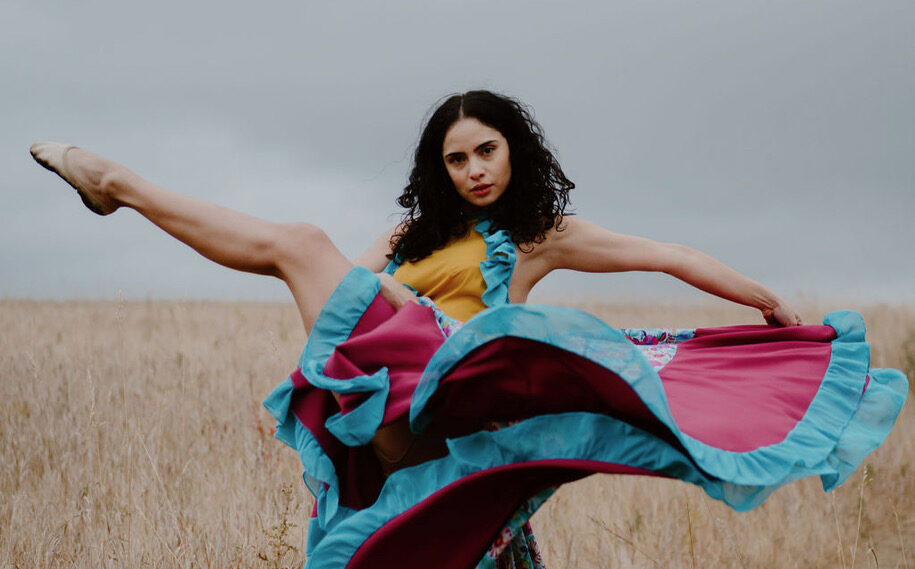
By Meghan Power
“The opportunity to learn and explore film through this project has been invaluable. I wouldn’t have been able to make this film a reality without the funding from Calgary Arts Development (CADA).”
Sol fell in love with ballet when she was three years old. “It was love at first sight. My mother tried to get me into other activities like Flamenco and swimming, but I only wanted ballet.” Sol studied with Gisela Paz de la Rosa Ballet School in Maracaibo, Venezuela. Growing up in Venezuela wasn’t easy, according to Sol. “At that time, the early 2000’s there was so much political unrest, violence, and fear. You’re living in survival mode.”
“In my teens I became more politically minded, and I didn’t dance as much. I didn’t know art could be political. I decided I would become a lawyer. A way to make change. In 2007, my family moved to Canada, and I began to think about dancing again. I studied dance and political science at the University of Calgary and while I was a student, I danced with local companies like La Caravan Theatre (2011), Jeunesse Company (2012), and performed for choreographers, including Lindsay Walsh, Jason Stroh and Natalka Lewis.
Sol’s project is titled S.A.L.O.P.I.C.A. “It’s a made-up word my grandmother used to describe people who weren’t alive or dead — they’re exploring the universe, she would say. Floating between places. Not anywhere. I related to that state of being. I chose it because it perfectly described how I felt as an immigrant.”
S.A.L.O.P.I.C.A is composed of three parts and each part focuses on a different aspect of Sol’s journey from Venezuela (pre-arrival) to Canada (culture shock) and into the present day (settling). “The three parts I created during my research for my own process. And my hope is that I can create a short film for each of the parts.”
The first film represents Sol’s early childhood in Venezuela — the fear, political upheaval, and ongoing violence — the pre-arrival to Canada. CADA’s funding helped Sol hire a crew, additional dance artists and an experienced co-director, Callum McCormack. McCormack shared his expertise and helped to guide Sol through the process of directing and editing. “I’ve learned a few things about film: it’s expensive; it’s a lengthy process, especially the editing process. And finally, you can never have enough footage.”
“For me, art is a practice about practise. Learning and relearning. This is how I grow as an artist, by being able to explore, discover, and re-discover what I’m doing. I need the creative space to be experimental and take risks — and for me as an artist, being able to access the financial resources CADA is offering and to be able to make my art a reality, is something I don’t ever take for granted.”